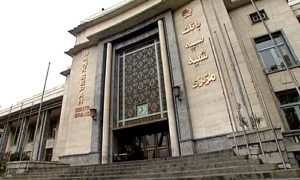by WorldTribune Staff, October 5, 2016
The Obama administration forged a secret deal to lift sanctions on an Iranian bank that was a primary funding stream for the Islamic Republic’s ballistic missile program, a report said.
The deal called for the immediate lifting of sanctions on Iran’s Bank Sepah – eight years before the sanctions were scheduled to be lifted under last summer’s nuclear deal, according to an Oct. 4 report by the Washington Free Beacon.

The Treasury Department described Bank Sepah in 2007 as the “linchpin of Iran’s missile procurement.”
A senior adviser to Congress told the Free Beacon that the Obama administration misled the public to avoid sparking outrage over its decision to drop sanctions on the top funder of Iran’s ballistic missile program.
“The Obama administration couldn’t tell the American public that it had just unleashed Iran’s ballistic missile program as one part of an enormous ransom extracted by Iran,” the source said. “So instead they ran to friendly reporters to misleadingly boast about how successful their diplomacy was, while they were bribing Iran with billions of dollars and military concessions to stay at the table.”
The Foundation for Defense of Democracies, a Washington, D.C.-based think tank, described the administration’s move as putting Iran’s ballistic missile program “back in business.”
“It represents a unilateral dismantling of the international ballistic missile embargo against the Islamic Republic,” FDD wrote in a recent policy analysis.
Despite international restrictions, Iran has test fired multiple ballistic missiles since the nuclear deal was implemented.
U.S. officials initially described the move as a “goodwill gesture” to Iran.
“The Obama administration misled journalists and lawmakers for more than nine months” about the secret deal, which was part of a “broader ‘ransom’ package earlier this year that involved Iran freeing several U.S. hostages, according to U.S. officials and congressional sources apprised of the situation,” the Free Beacon report said.
State Department officials told the Free Beacon in January that the settlement with Iran, including a $1.7 billion cash award, was “not related” to “the release of the U.S. citizens from Iran.”
U.S. officials last week confirmed to the Wall Street Journal that in the lifting of sanctions on Bank Sepah “was part of a package of tightly scripted agreements” surrounding the release of the U.S. citizens from Iran.
When asked about the discrepancies between these statements, a State Department official would not elaborate, instead telling the Free Beacon, “The U.S. government had already made the determination that it would remove Bank Sepah from our domestic Specially Designated Nationals and Blocked Persons List on Implementation Day, which was outlined clearly in the JCPOA [nuclear deal] itself in July 2015.”
“We made this determination after a careful review of the activity of all individuals and entities — including Bank Sepah — that would be removed from the SDN list,” the official explained. “Although we removed Bank Sepah from the U.S. SDN list, Bank Sepah will continue to be cut off from the U.S. financial system and its funds under U.S. jurisdiction will remain blocked. Furthermore, we have the ability to quickly reimpose additional U.S. sanctions if Bank Sepah or any other entity engages in activities that remain sanctionable.”
A U.S. official told Al Monitor in late January that the move to cancel international sanctions on Bank Sepah at the United Nations was undertaken by Venezuela without U.S. action.
“We already made the decision to de-list this bank as part of U.S. secondary sanctions as part of the nuclear deal,” the official said, claiming the United States only agreed “not to oppose the de-listing at the U.N., which Iran very much wanted.”
Senior Iranian officials said in January that the $1.7 billion payment and de-listing of Bank Sepah were part of the agreement to free U.S. hostages, a charge the Obama administration denied at the time.
“The annulment of sanctions against Iran’s Bank Sepah and reclaiming of $1.7bln of Iran’s frozen assets after 36 years showed that the U.S. doesn’t understand anything but the language of force,” Mohammad Reza Naqdi, commander of Iran’s Basij Volunteer Force, told Iran’s state-controlled press in early February.
Senior congressional sources apprised of the matter told the Free Beacon that these latest revelations provide further proof of the administration’s intentional bid to deceive the public about its dealings with Iran.
“Facts are facts, no matter how much the administration tries to hide them,” said one senior congressional aide involved in investigating the matter. “Journalists and Members of Congress are on the trail and have already uncovered so much, including the cash payment of almost $2 billion to the world’s largest state sponsor of terrorism as a ransom for four American hostages. The truth, no matter how disturbing it is, will continue to come out.”
